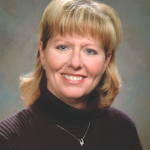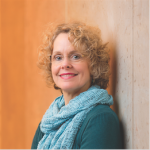While he didn’t initially consider making the move to head up the CVB — Aguel was actually involved in the process of looking for a replacement for former Visit Orlando President and CEO Gary Sain, who died suddenly in May 2012 — he said it seemed a natural fit and has been an easy transition. “All I had to do was leave my driveway,” Aguel told Convene recently, “and go in a little different direction.”
I was very close to Gary [Sain], and it was a really difficult thing for me personally to lose him as a friend. After several months of considering candidates, I was asked to consider the position myself. I had served on the [Visit Orlando] board for many years, so I knew the organization very well. I knew the staff, the business community, and the leadership of the community very well for so many years. I’ve always, as long as I can remember, been active in a volunteer leadership role, as I’m passionate about the community. Orlando is home. Our sons were raised here. We’re definitely going to retire here.
I knew it would be an easy transition since I’m not going to a city where I don’t know anybody, or a job where I don’t know what it entails, or understand the nature of the work. I already have the relationships in the industry and community.
Orlando welcomes more visitors than anyone in the country, more than Vegas, more than New York — more than anybody. As vast as that is, everybody gets along here. Everybody will have friendly competition, but everybody is very unified on the importance of tourism to our community and to the economy. So, when it comes to anything that involves tourism, everybody comes together. I just saw this role as a great opportunity for me to extend my engagement in what we do in a place that I have a lot of passion for. The team here is amazing.
It’s about partnerships. I can envision the potential for an organization like ours to develop stronger, more compelling partnerships — it’s one of the opportunities that I am looking at, since I’ve had so many years of experience involved in developing those kinds of corporate partnerships [at Disney]. I think you learn a lot about the importance of great leadership in a company like Disney. You learn the importance of having a variety of stakeholders gain equity into what you’re trying to do.
One thing that’s good about this destination is that we have partners that are constantly investing in the community and adding new assets, and making sure that we’re then marketing them. And clearly one of the big opportunities for us is internationally. It’s a great international destination.
What’s great about this role for me is that I used to be limited to what I could say about the opportunities at Disney. Now, I’m like, “I love everybody! I represent everybody!” This CVB stuff is good. This is a good job.
As far as the meetings industry as a whole, it’s recovering, but not recovering like the leisure side. I think that a lot of facilities are overbuilt, but the hotel side seems to be coming back. That’s the positive news. I think that so far we’re on the right trajectory, as long as we keep doing what we should be doing, promoting the value in face-to-face meetings. I think we’re going to have to keep reinforcing that very strongly on the trade-show side, but even just the pure meeting side — which has not risen back like business travel and leisure have, so we have to keep looking at that.
One of the things that has changed during the course of my career is the accountability for the value of investing in meetings — it’s so huge now, it’s just dramatic. Then there’s the way that technology has affected everything.
What I can’t predict is, what is it going to be like 10, 15 years from now? What is a meeting going to be like? The challenge for the meetings industry, I think, is going to be the next generation, those who are just as content texting and face timing each other, even though they’re in the next room. I’m curious as to how much value they think they’ll get out of gathering for a single purpose. Do they need it to be motivated? Do they want to learn and network with their colleagues in that setting? Do they feel they can do it all virtually or in other forums? It’s happening today, anyway. The question is, is that generation going to push the ledger more to that side than it is today? I don’t know, but I’m intrigued.


